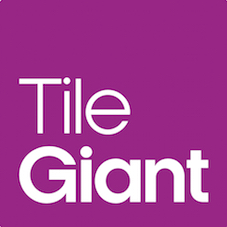UK DIY News
Price rises expected in new Argos catalogue to make up for weak pound
The first real effects of sterling's decline against the dollar will filter through onto the Britain's high streets this week when the new Argos catalogue is launched with prices likely to be 5% higher.
Two million shoppers are expected to pick up a copy of the new catalogue when it goes into the chain's 800 stores. Two thirds of the British population have an Argos catalogue at home and the retailer's growth over the last decade has been powered by ever cheaper imports from the far east.
Although the pound has recovered some ground against the dollar in recent weeks, it remains 20% below its level of a year ago – pushing up the price of all goods imported from China and the far east, which are purchased in dollars.
About 54% of 18,000 products in the Argos catalogue are made in China and another 8% come from other east Asian countries.
Most retailers have been hedged against adverse currency movements until this summer, which has protected their profit margins, but those hedges have now expired – leaving retailers with the stark choice of putting up prices or absorbing the extra costs.
Terry Duddy, the chief executive of Home Retail Group – which controls the 800-strong Argos chain and the Homebase DIY business – has been warning for months that price rises were inevitable and that retailers could not absorb the huge rise in import costs. Other retailers have insisted that in the current economic climate, consumers will not pay higher prices and chains which try to push them through will sell fewer goods.
Argos is already suffering in the recession. Operating profits were down 19% last year as margins dipped by 1.5 percentage points. Last month the retailer said like-for-like sales were down 2.8% on last year – though that was better than many City analysts had feared. Duddy said the prospect of rising unemployment for the rest of this year would continue to hit consumer confidence and spending. At the same time, Argos could be vulnerable to Tesco, Asda and Sainsbury, which are all ramping up their online businesses.
Some of the increase in import costs caused by the declining pound has been offset. Retailers have benefited from the drop in shipping rates and have demanded price cuts from Chinese suppliers from the dip in raw material costs.
Accountants PricewaterhouseCoopers warned that rising import costs would cost British shoppers £10bn, assuming retailers would pass on half the £20bn in extra costs.
Argos, whose new catalogue is released on Wednesday, has reacted to the higher prices by introducing more Value lines – cheaper alternatives to higher spec products. The range – which includes kettles, toasters and food mixers for less than £5 – was introduced last summers. Some of those prices are cheaper than when the catalogue first launched in 1973. At that time a two slice toaster cost £5.25.
Retail analyst Paul Smiddy of HSBC described Home Retail as "easily the worst placed" of the big retailers facing the exchange rate problem. The Argos catalogue, he said, meant the chain had less flexibility in its pricing and he calculated that at an exchange rate of $1.60 to the pound, Argos could face a currency hit of £226m – more than expected profits.
Duddy is not the only retailer to be planning price rises. Marks & Spencer boss Sir Stuart Rose said he hoped to push through price rises of 2%-3% and squeeze suppliers to minimise the impact of the currency movement.
Next's chief executive, Simon Wolfson also warned that prices will have to rise.
However, other retailers say that the trading environment is so tough that it is not possible to raise prices and keep shoppers coming through the doors.
Source : Julia Finch - Guardian.co.uk
www.guardian.co.uk/business/2009/jul/19/retailers-argos-price-increases?INTCMP=ILCNETTXT3487
Insight DIY always publishes the latest news stories before anyone else and we find it to be an invaluable source of customer and market information.








































